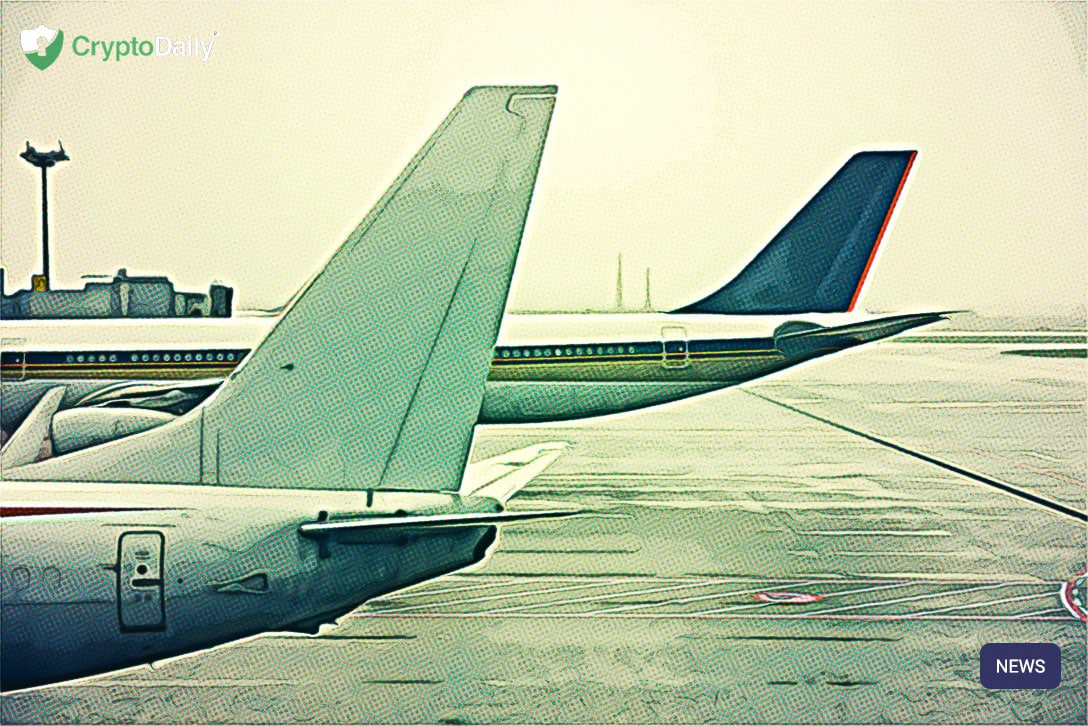Table of Contents
- The air travel industry has been one of the slowest markets to embrace cryptocurrencies.
- However, that has now changed over the last couple of years with many travel companies starting to accept cryptocurrency payments.
The air travel industry has been one of the slowest markets to embrace cryptocurrencies. However, that has now changed over the last couple of years with many travel companies starting to accept cryptocurrency payments. However, there are milestones to be covered before full deployment in the air travel industry can begin.
Currently, Air travel experts are looking at the possibility of using smart contracts to improve various business-to-business operations such as invoicing, reconciliation, settlement, and accounting. A blockchain in air travel whitepaper published by the international air travel association (IATA) in 2018 pointed out that challenges in areas of governance, scalability, and cost of usage as the main obstacles against full penetration.
However, since then, the cryptocurrency market has matured to become one of the most promising places to invest. In fact, as seen during the COVID-19 pandemic, the leading cryptocurrency in the industry, Bitcoin has become a preferred alternative investment option to the stock market amid increased market uncertainty. Some cryptocurrency experts have likened Bitcoin to gold, calling it a safe-haven investment.
As such, it looks like some of the obstacles cited by IATA in the whitepaper like scalability have already dissipated. Multiple industries have now embraced crypto including the financial services market. Mastercard, Google Pay, and PayPal are just among the few to mention. Big banks like JPMorgan Chase and now Goldman Sachs, are looking to launch their own stablecoins. As such, it is feasible to say that the cryptocurrency market has become more scalable in the last few years.
Air travel embraces crypto
The air travel industry is now being disrupted left-right-and center from air ticketing and invoicing to cashback offers and in-flight freebies. It’s all coming together. One of the leading disruptors in this segment of the market is the Norwegian Block Exchange (NBX), which offers cryptocurrency investors an opportunity to earn cashpoints every time they trade crypto on the NBX platform.

These cashpoints can then be used to pay for various services on the Norwegian Air travel Shuttle such as flight tickets, in-flight parks, or extra luggage. Traders can trade Bitcoin, Ethereum, USD Coin, and Norwegian Krone Coin on the platform. The CashPoints are exchanged at a rate of 1 CahsPoint for 1 NOK.
NBX is not the only platform targeting the airline industry with lucrative features. A UK-based air ticketing platform, Alternative Airlines, with access to over 600 airlines across the world offers cryptocurrency investors an opportunity to pay for their air tickets with eight different cryptocurrencies. These include Bitcoin, Ethereum, Dash, Litecoin, and Ripple among others. This again shows how different segments of the air travel industry are embracing the use of cryptocurrencies.
The future of crypto in air travel
Using the same concept behind bitcoin, air travel could benefit significantly by investing in blockchain technology to improve security. Ideally, the travel activity of passengers could be stored in the blockchain where they can be accessed by airline security to verify the credentials of the traveling persons before boarding the plane. This can easily be used to enhance airport security thereby helping to foil terrorism cases.
The entire air travel ticketing industry could also be put in a blockchain resulting in several synergy benefits. And given the innovation demonstrated by platforms like the Norwegian Block Exchange, it could become even easier to accumulate such CashPoints through trading and traveling.
The IATA whitepaper on blockchain in air travel hinted about the potential opportunities that smart contracts could create for the industry. Airlines could streamline invoicing and accounting processes, But even more importantly, the same concept could be used in financing the purchase of assets and services that are crucial to the smooth running of the business. With smart contracts, if all documentation can be put in a blockchain, then it speeds up the signing processes that require thorough verification of paperwork presented.
Conclusion
In summary, the air travel industry appears to have embraced crypto after a long period of resistance. This has opened up doors for companies from all segments of the market to launch disruptive products.
However, while progress has been made, it looks like the future if even more promising as more sectors of the global economy buy into the crypto story in various capacities. Some are targeting security, others are rolling out crypto payments, while others are looking for ways to scale the applications of blockchain and crypto.
Investment Disclaimer





